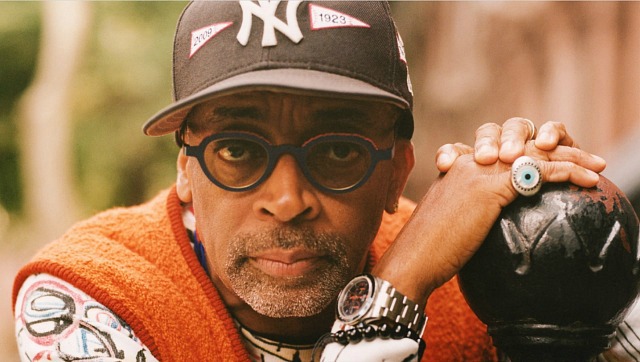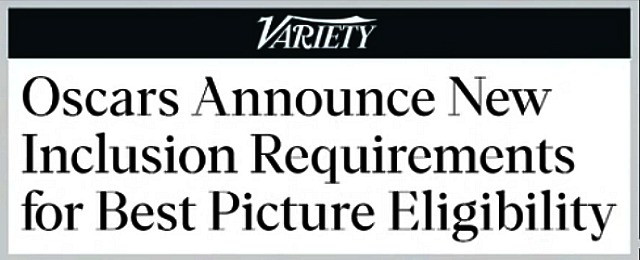In a Variety cover story penned by award-season handicapper Clayton Davis, the legendary Spike Lee is asked what message he has “for Oscar voters who don’t agree with the new set of [diversity-favoring] Academy rules?”
Lee’s response: “They probably voted for Driving Miss Daisy and Green Book.” Lee is alluding to a bloc of voters known for their white boomer mindsets, and otherwise regarded as change-resistant bugaboos with conservative perspectives and what he presumes is a grumbling resistance to p.c. quotas and checklists.
In a 10.7 Indiewire piece posted earlier today, Zack Sharf writes that Green Book and Driving Miss Daisy “tell stories about race from a white perspective.”


Yes, there’s a New York Italian-American perspective in Green Book, and yes, the script was co-written by Nick Vallelonga (son of Viggo Mortensen‘s Tony Lip character) along with Brian Hayes Currie and director Peter Farrelly.
Then again it’s based on the documented recollections of Don Shirley as well as Tony Vallelonga, and it’s not told so much from a “white” point of view as much as a 1962 social perspective, when things were a lot less liberal and fair-minded compared to today.
And it’s fundamentally a parent-child relationship film with Mahershala Ali‘s Shirley character, a masterful jazz pianist, maintaining the ethical and behavioral upper hand throughout most of the film.
Lee’s derision doesn’t seem to be based on how the story is told (what would he have done differently if he wanted to be truthful about Vallelonga and Shirley’s recollections?) but that Green Book was made at all.
In short, Green Book isn’t a “white perspective” movie but a blend of all the above. Sharf, a dutiful foot soldier in service of the woke Indiewire agenda, is deliberately misrepresenting, as Lee has all along.
No dispute about Bruce Beresford‘s Driving Miss Daisy reflecting a whitebread industry consciousness about racism. I’ve never been much of a fan of this 1989 film, but to be fair it is set in Atlanta of 1948, which was a whole different moral universe than the realm of Los Angeles some 41 years later, much less today.
From “Sasha Stone vs. Brooks Barnes Over Green Book“, posted on 2.26.19: “It is misleading…to point to a small but loud group of people protesting the film’s [Best Picture Oscar] win but not, on the other, to report how popular Green Book was across the board.
“Two years ago, La La Land’s momentum was slowed because of politically correct protests online. (It was inauthentic, they claimed, for a white guy to be a jazz buff.) The Best Picture Oscar went to Moonlight. The following year, Three Billboards Outside Ebbing, Missouri was met with protests over its rural insular whiteness. It, too, was derailed — The Shape of Water won. This year Green Book was repeatedly assaulted for being old-fashioned, too white and even vaguely racist.
“But this time the protests didn’t work. This may reflect an exhaustion with the hive mind continually pushing the red button of alarm.
“Green Book won the Toronto Audience Award in September, beating Roma, A Star is Born and every other film that played there. Green Book also defeated BlacKkKlansman, Black Panther, Roma, Bohemian Rhapsody and The Favourite at the Producers Guild of America Awards. It triumphed at the Golden Globes as well. If you ask me that show’s broad support counters your headline, and the narrative going forward.
“The fact is that for a film to win on a preferential ballot, as Green Book did at both the Producers Guild and the Oscars, it had to have broad support across all markers. That meant it could not have won with just ‘old white guys.’ Moreover, if ‘old white guys’ led that vote, how do you explain the unprecedented array of diversity and inclusion in the other categories?









